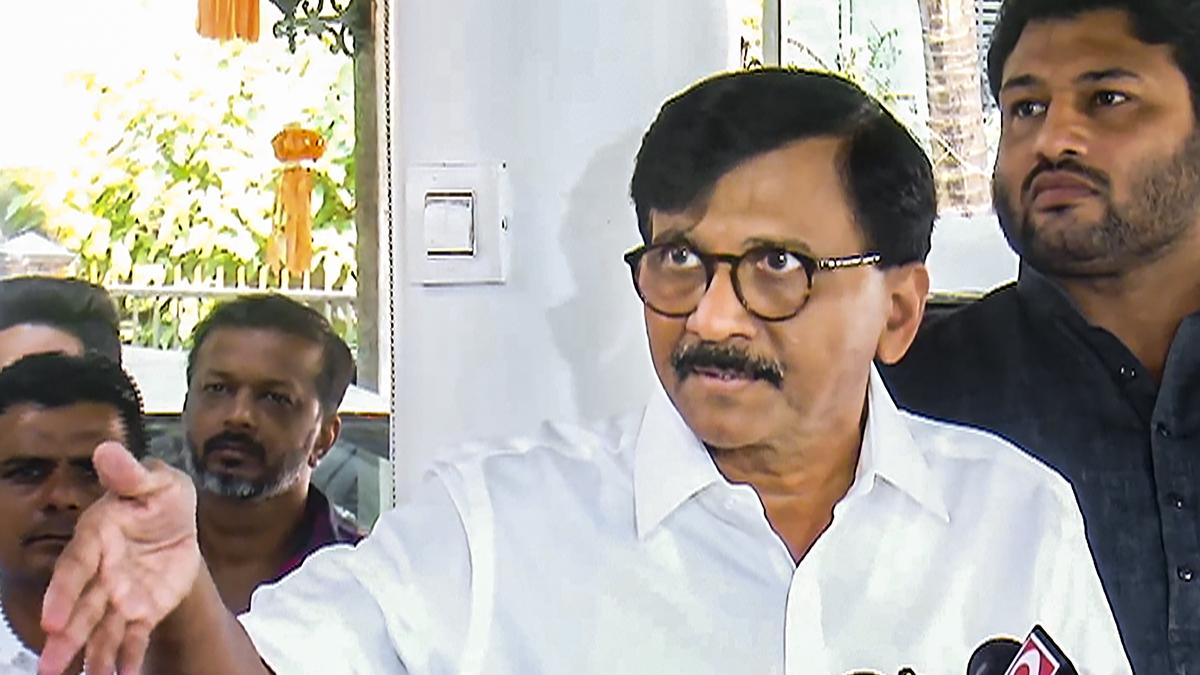 |
|
The political landscape of Maharashtra is currently embroiled in a heated debate surrounding the selection of the next Chief Minister. Sanjay Raut, a Member of Parliament from the Shiv Sena (UBT), has launched a scathing attack on both Eknath Shinde, the current caretaker Chief Minister and leader of a faction of the Shiv Sena, and Ajit Pawar, leader of a faction of the Nationalist Congress Party (NCP). Raut's criticism centers on the perceived subservience of Shinde and Pawar to the Bharatiya Janata Party (BJP), characterizing their alliance as one of complete dependence, rendering them essentially powerless to make independent decisions regarding the future leadership of the state. He forcefully contends that the ultimate decision on the Chief Minister will rest solely with Amit Shah, the Union Home Minister, and Narendra Modi, the Prime Minister of India, underscoring the BJP's dominant role in the coalition. This assertion highlights the deep-seated tensions and power dynamics at play within the ruling alliance.
Raut's pronouncements are not merely critical; they are overtly accusatory. He labels both Shinde and Pawar as 'sub-companies' of the BJP, implying a complete lack of autonomy and agency within their own political parties. This strong rhetoric underscores the intensity of the ongoing political struggle and the perceived power imbalance within the Mahayuti alliance. The fact that such accusations are made publicly suggests a deliberate attempt to undermine the legitimacy and authority of both Shinde and Pawar, potentially to destabilize the existing power structure and gain leverage for Raut's own political faction. The significance of Raut's statements lies not only in their direct critique but also in their potential to influence public perception and sway political opinion.
Further fueling the controversy, Raut boldly predicts that Devendra Fadnavis, a prominent leader of the BJP, will be appointed as the next Chief Minister. This prediction, while seemingly based on the BJP's current majority in the state legislature, also subtly suggests that the BJP is prepared to exploit any weaknesses within the Shinde and Pawar factions to consolidate its power. The implication is that the BJP may be willing to further destabilize the alliance if necessary to achieve its desired outcome. This assertion adds another layer of complexity to the ongoing power struggle, highlighting the potential for further political maneuvering and realignment in the coming days and weeks.
In contrast to Raut's aggressive stance, Deepak Kesarkar, a Shiv Sena leader and state minister, adopts a more conciliatory approach. Kesarkar publicly declares his acceptance of whatever decision Modi and Shah might make regarding the Chief Minister. This statement underscores the significant influence wielded by the central government leaders and the subordinate position of the Mahayuti alliance partners. Kesarkar's willingness to accept the central leadership's decision contrasts sharply with Raut's criticism, further exposing the internal divisions and contrasting strategies within the ruling coalition. This difference in approach highlights the internal power struggles and the complexities of navigating the shifting alliances within Maharashtra's political landscape.
Eknath Shinde's request to his supporters to refrain from congregating in Mumbai or elsewhere adds another layer of complexity to the situation. This plea suggests a concern about potential unrest or demonstrations that could further destabilize the already fragile political situation. The cautious and measured tone of Shinde's statement, contrasted with the more aggressive rhetoric of Raut, demonstrates a strategic attempt to maintain order and prevent any escalation of the conflict. However, this act also underscores the underlying tensions and anxieties within Shinde's own camp and the uncertainties surrounding the future leadership of the state. The overall situation points to a critical juncture in Maharashtra's political landscape, where power dynamics are being intensely negotiated and the future of the state government hangs in the balance.
The events unfolding in Maharashtra underscore the fluidity and unpredictability of Indian politics. The ongoing power struggle reveals the complexities of coalition governments and the significant influence wielded by national leaders in state-level politics. The stark contrast between Raut's defiant accusations and Kesarkar's acceptance of central authority reveals deep-seated divisions within the ruling alliance. The situation highlights the precarious nature of political alliances and the potential for rapid shifts in power. The coming days and weeks will be crucial in determining the ultimate outcome and the long-term implications for the political stability of Maharashtra. The ongoing drama serves as a case study in the intricate workings of Indian politics, emphasizing the importance of alliances, loyalty, and the relentless pursuit of power.
